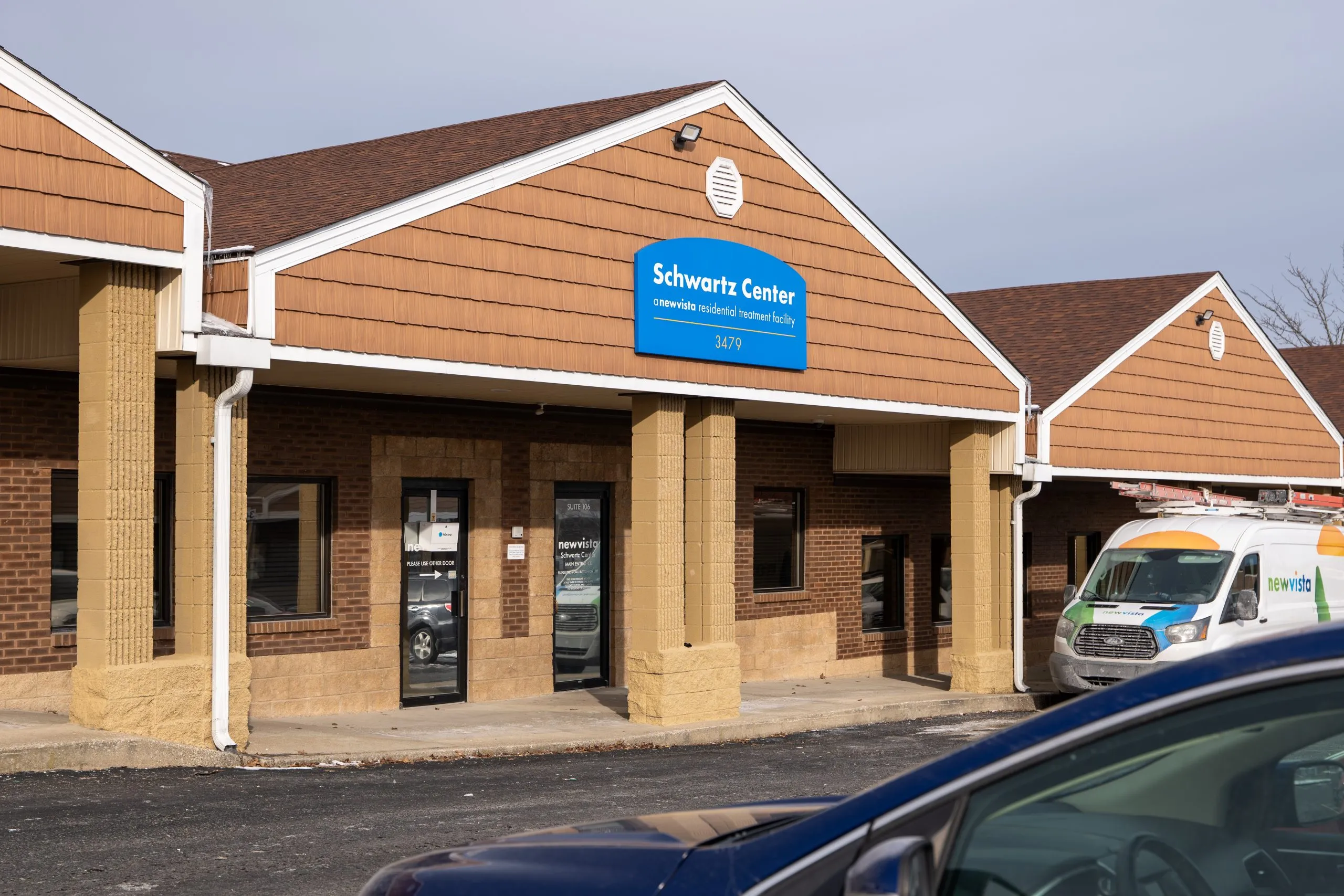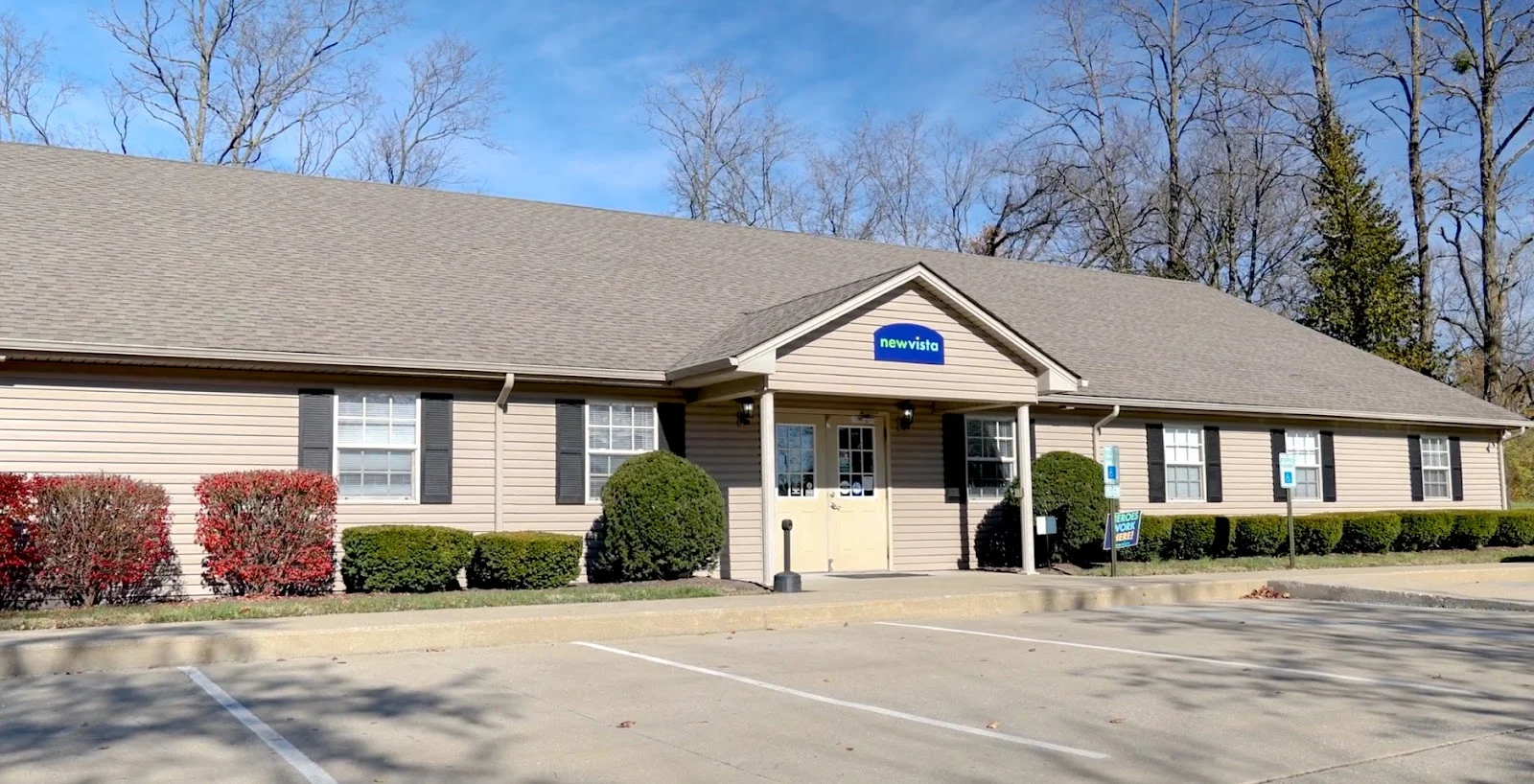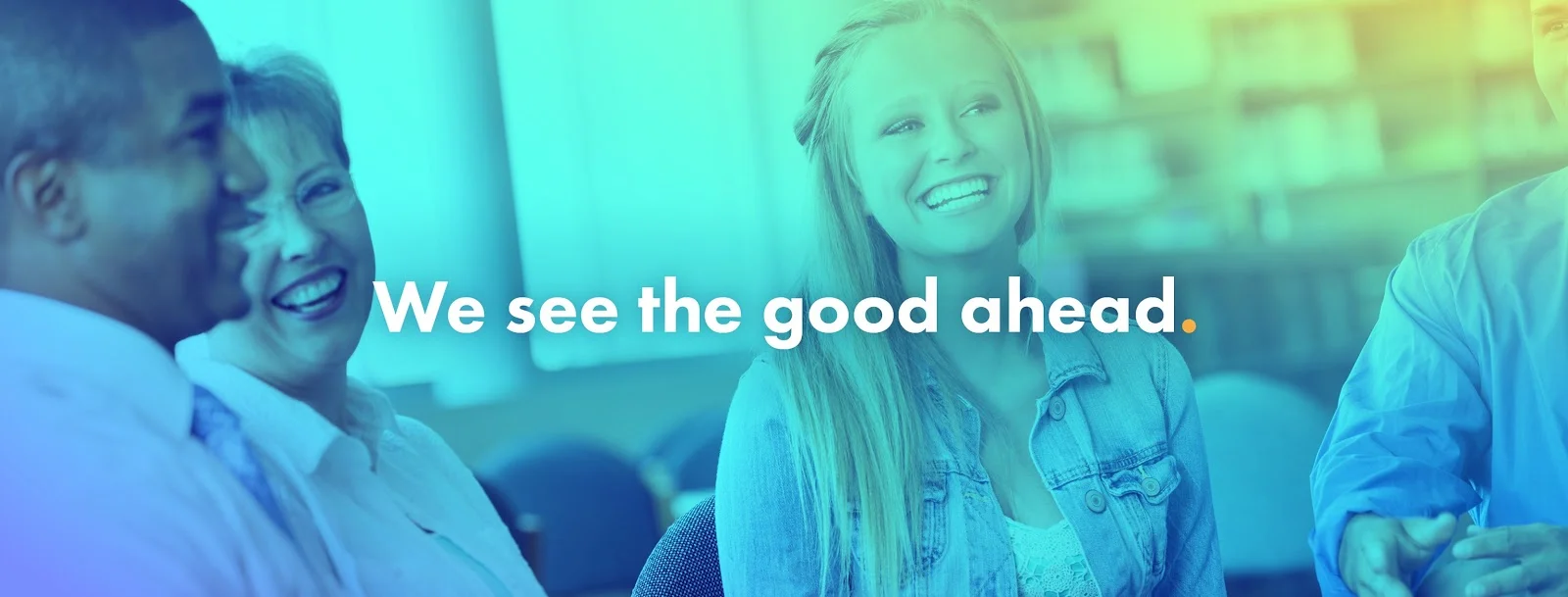New Vista - Schwartz Center Information
Treatment
Who We Treat
- Young Adults (18–25)
- Adults
- Seniors/Older Adults
- Older Adults
- Male and Female
Treatment Focus
- Co-Occurring Disorders
- Drug Addiction
- Opioids
- Alcohol
Approaches
- 12-Step-Based
- Individual Treatment
- Evidence-Based
- Twelve Step
- Family Therapy
- Group Therapy
- Cognitive Behavioral Therapy (CBT)
- 1-on-1 Counseling
- Medication-Assisted Treatment (MAT)
- Life Skills Training
- Relapse Prevention Counseling
Conditions We Treat
- Trauma
- Perinatal Mental Health
- Gambling
- Co-Occurring Disorders
Substances We Treat
- Alcohol
- Opioids
Languages
- English
Aftercare
- Discharge Planning
- Relapse Prevention Planning
- Outpatient Treatment
- Recovery Coach
- Intensive Outpatient Program
- Employment Counseling
- Continuing Care
- Employment/Vocational Counseling
- Support Meetings
Level of Care
- Outpatient
- Residential Rehab
- Co-Occurring Mental Health
- Aftercare/Continuing Care
Experience
Personal Amenities
- Private or Shared Rooms
- Air-Conditioned Rooms
On-Site Activities
- AA/NA Meetings
Smoking and Vaping Policy
- Smoking Not Allowed
- Vaping Not Allowed
Accreditations
-
State mental health department
State mental health department accreditation refers to the process of evaluating and certifying the quality and standards of a state's mental health department, ensuring that it provides high-quality services and meets specific criteria for mental health care. The accreditation process is performed by a third-party organization and helps to improve the overall care and treatment of individuals with mental health conditions.
-
Commission on Accreditation of Rehabilitation Facilities (CARF)
CARF accreditation is a globally recognized certification for rehabilitation and human service organizations. It signifies that an organization meets high-quality standards and is committed to providing top-level care. Achieving CARF accreditation involves a rigorous evaluation process, including on-site surveys. This accreditation enhances an organization's reputation, instills trust in clients and funders, and encourages ongoing excellence in the field.

-
The Joint Commission
The Joint Commission accreditation signifies that a facility has met rigorous standards of excellence in patient care, treatment, and safety. It assures individuals and healthcare professionals that the accredited facility provides high-quality, evidence-based care for addiction and mental health issues, fostering trust and confidence in their services.

Additional Locations
New Vista - Schwartz Center Accepts The Following Insurance Plans
Find the best treatment options. Call our free and confidential helpline today!



























